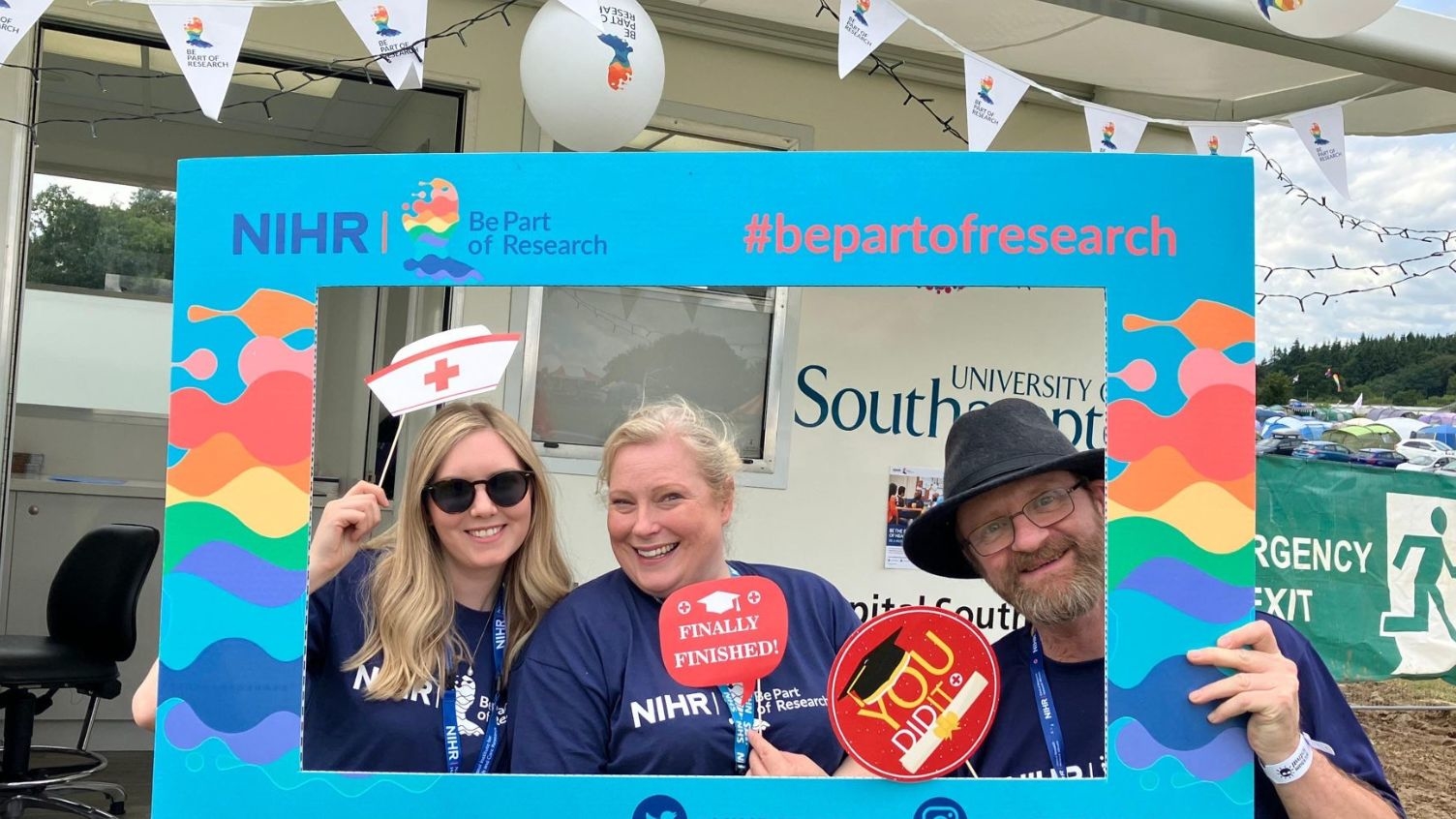Our experience as COVID19 Medical Student Volunteers
- 4 June 2020
- 3 min read
A group of medical students describe how they put their studies on hold to help with the research effort into COVID19
Incorporating Medical Student Volunteers directly into research teams
by Max Mulligan (Pictured front left), Tamsin McKinnon (front right), Liam Richards (middle left), Scarlet-Daisy Prior (middle right), Victoria Gresty (back left), Alastair Watson (back right), Holly West and Patrick Huntley (not pictured) working at Heartlands Hospital
As medical students, we were unsure how we could help with the unfolding COVID-19 crisis. So upon receiving an invitation to support crucial research into COVID-19 in late March, we jumped at this opportunity. We are eight keen student volunteers, among the first to respond to help researchers and the National Institute for Health Research Clinical Research Network West Midlands (NIHR CRN WM) to deliver essential COVID-19 clinical research, as staff were redeployed to the NHS frontline.
Led by Dr Chris Green, Consultant in Infectious Diseases at the University of Birmingham, and coordinated by the newly established COVID-19 Student Volunteering Admin Team, we took part in a new programme to rapidly incorporate medical student volunteers directly into research teams. This required the close cooperation of clinicians, nurses and CRN WM staff, and created an exciting new role for us.
Our first task was to complete the Good Clinical Practice (GCP) training course followed by hospital induction. We became the first cohort of medical students to be allocated roles at Birmingham Heartlands Hospital. We researched observational data for COVID-19 positive patients and completed the Case Report Form for the ISARIC study which aims to answer a number of urgent questions about COVID-19.
Without any previous experience of clinical research during our studies at medical school, we were excited to receive the chance to participate in a research role. Although we came in with varied expectations, it has been a great learning experience for everybody, giving us a unique perspective and insight into COVID-19 research.
With support and training from research and development staff, we were rapidly incorporated into the team, and quickly improved our understanding of the often complex COVID-19 cases.
We have really enjoyed the opportunity to contribute to clinical research at this unprecedented time. Speaking to the Principal Investigator on a daily basis allowed us to appreciate the wide-ranging implications and value of the work we were carrying out.
Tamsin says: "It has been great to be included in the daily briefing meetings, as we get a real-time update on the COVID-19 crisis as it develops"
The volunteer role has also provided the opportunity to develop our clinical skills and knowledge. Through case discussions with doctors, gaining a better understanding of trials and familiarising ourselves with the ward setting, we have been able to gain confidence in the clinical environment and learnt to work as part of the healthcare team.
"I have really enjoyed the introduction to infectious disease, and the chance to see the wards from a clinical perspective. I have also been able to get a better sense of patient journeys while in hospital," says Max
The volunteer team is balanced with both undergraduate and graduate-entry students, which provides an interesting mix of experiences and expertise.
For a first-year undergraduate student, getting involved in research to combat a global crisis was eye-opening. For all of us, taking an active role to support a national research effort has been fascinating.
"Having a taste of research has been very rewarding, especially when I hear a mention of the trials we have contributed to on the tv and radio!" adds Victoria
Taking part in this programme has ultimately sparked new questions:
- how can we apply the lessons learnt from this programme for future initiatives?
- how can medical students positively influence research around them?
- moving forward, how can we gain closer links between clinical research and medical student training?
We would also like to see more opportunities for clinical and lab research placements during our time at medical school and would also appreciate the introduction of basic research training, including GCP training, portfolio management and explanations of research staff roles.
Alastair says: "My research experience has definitely made me consider a career in academia, and it's a shame this opportunity isn't available to students during medical school"


